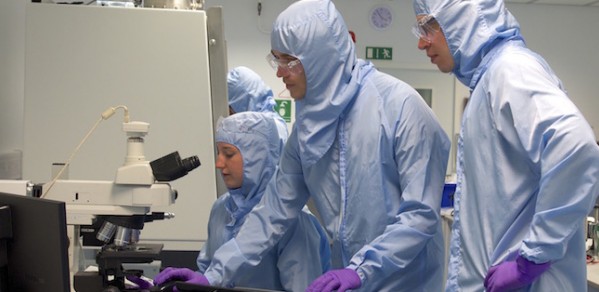
The Department of Engineering is proud to announce that there are now nine Engineering and Physical Sciences Research Council (EPSRC) Centres for Doctoral Training (CDTs) associated with the Department.
CDTs are a bold new approach to training PhD students and are widely supported by business and industry. Students follow a four year course - 1 foundation year and 3 years of research towards the PhD degree. During the first year, students follow a course of lectures and undertake a number of mini projects. At the end of the first year, students are awarded an MRes degree. Successful students are permitted to continue to the PhD degree with a number of Research topics available in the Department of Engineering, other Departments in the University of Cambridge and, in some cases, in other institutions.
The aim of each centre is to create a community of researchers working on current and future challenges. The multidisciplinary centres bring together diverse areas of expertise to train engineers and scientists with the skills, knowledge and confidence to tackle today’s evolving issues. They also create new working cultures, build relationships between teams in universities and forge lasting links with industry at a range of levels, from small and medium-sized enterprises to large, multinational corporations.
The nine centres are:
CDT in Ultra Precision is a collaboration with Cranfield University.
CDT in Integrated Photonic and Electronic Systems (IPES) a joint course with University College London (UCL). Students from UCL and the University of Cambridge can choose modules from both institutions in the first year.
CDT in Future Infrastructure and the Built Environment. The Future Infrastructure and Built Environment CDT has established a strategic partnership with academic and industry partners worldwide.
CDT in Gas Turbine Aerodynamics. In partnership with Universities of Oxford and Loughborough.
CDT in Graphene Technology. The focus of this CDT is industrial applications for graphene and related two-dimensional materials. Most of the project partners are commercial companies, with the remainder being research institutes and business development agencies.
Nano Science & Technology Doctoral Training Centre Cambridge (NanoDTC). An interdisciplinary PhD program involving several Departments, including Engineering, Chemistry, Materials Science and Physics.
CDT in Computational Methods for Material Science. Department of Physics-led cross-disciplinary CDT, including the Departments of Chemistry, Physics, Materials and Engineering
CDT for Sensor Technologies and Applications. An interdisciplinary programme led by the Department of Chemical Engineering and Biotechnology, involving Departments from the Schools of Physical Sciences, Technology, Biological Sciences and Clinical Medicine.
CDT for Nuclear Energy. Members from the Departments of Engineering, Earth Sciences and Materials Science are collaborating with Imperial College London and The Open University. This is a new Nuclear CDT and complements the existing Nuclear CDT led by the University of Manchester.

